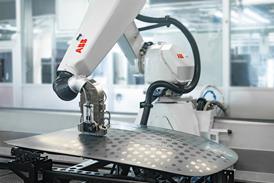 The knock-on effect of the downturn in carmaking has started to take its toll on major suppliers to the auto industry. With an estimated 33% drop in orders over the last 12 months, Corus Steel has announced it plans to layoff 3,200 employees. Bought in 2007 by Tata Steel, the company was purchased at the height of its value and as such, could be more sensitive than its competitors to shrinking steel orders.
The knock-on effect of the downturn in carmaking has started to take its toll on major suppliers to the auto industry. With an estimated 33% drop in orders over the last 12 months, Corus Steel has announced it plans to layoff 3,200 employees. Bought in 2007 by Tata Steel, the company was purchased at the height of its value and as such, could be more sensitive than its competitors to shrinking steel orders.
Regardless of the motivation, other steel producers will likely consider similar measures when faced with declining sales. The job losses have been announced to be predominantly affecting Corus' UK operations, with an unconfirmed 2,500 job cuts at the Port Talbot (Wales) steel plant. It should come as no surprise that the UK is catching the brunt of these cuts in light of drastic production cuts and the knock-on effect of a reduced demand for steel. As yet, Tata Steel has not had to announce any similar job cuts in its home market, and whether it will need to largely depends on two sets of circumstances.
The burgeoning Indian middle class is currently supporting a surge in local car sales. In what is reported to be a nation of savers (with the percentage of per-household income deposited in bank accounts actually larger than that of even the Japanese), this newly-expanding demographic has taken the decision to spend today rather than save for tomorrow. Should the trend reverse, it could still be Indian carmakers that are cutting production - and similarly affecting local steel orders.
Further, both Hyundai, with its i10, and Maruti Suzuki, with its cross-platform A-Star, Alto and Pixo, have recently announced the start of exports to various European markets. Both companies are hoping to reap the benefits of an expanded consumer base, yet should those exports fail to sell in areas of reduced credit availability and nervous consumers, the ripple effect would surely see Indian steelmakers facing reduced orders.
It's a difficult spiral to break; lack of consumer sales lead to production cuts, which in turn leads to reduced parts and material orders, putting suppliers and tier operations at risk through an order shortfall. Case in point is the recent closure of Contech, maker of light-weight castings, filing for bankruptcy protection with the possible loss of 1,100 jobs – directly attributable to the reduced number of cars entering production. Although the on-going rebalancing of production will eventually produce leaner, stronger manufacturers and supply chains, the interim period of restructure is proving painful to behold.
With this in mind, it is beyond surprising that Chrysler is once again requesting that Tier suppliers reduce part prices, the OEM attempting to slash out-going expenses in order to qualify for further US government loans. Closures such as that of Contech only go to prove that, after twenty years of OEMs demanding lower part prices, there is already precious little fat left to cut when it comes to manufacturing car parts.





































